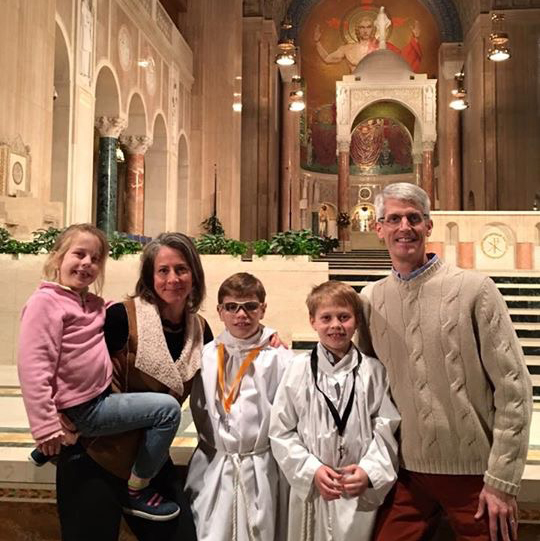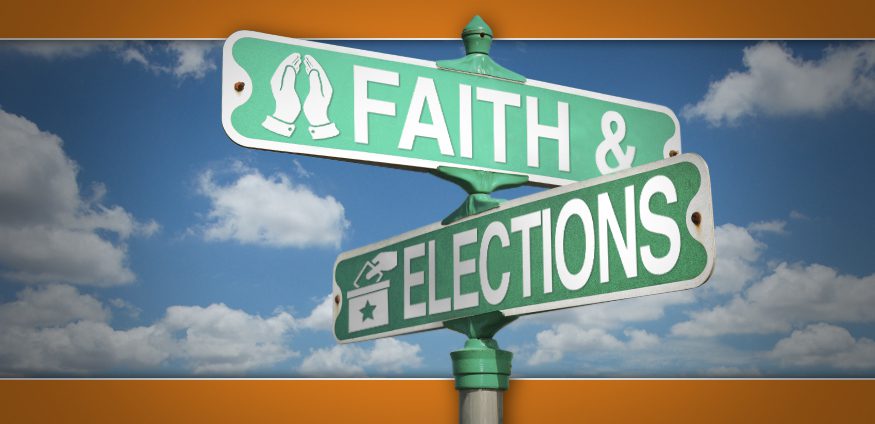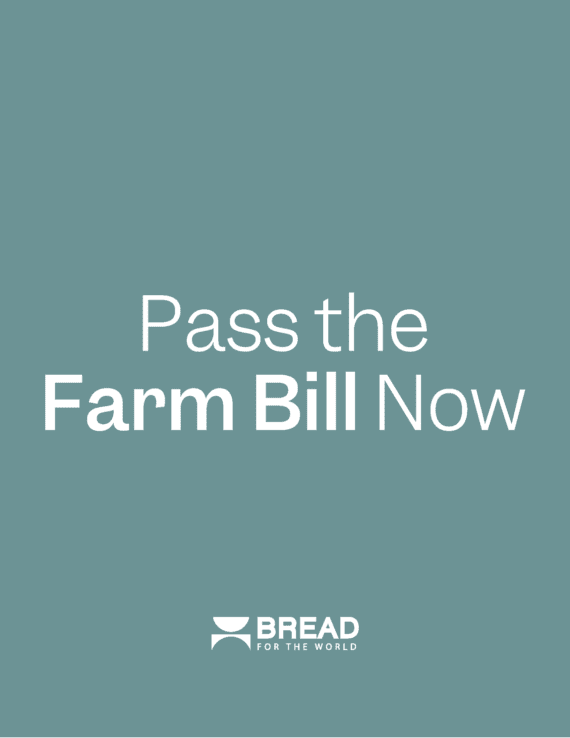Editor’s note: Ahead of the presidential November election, Bread Blog is exploring faith and elections through the lens of different faith perspectives. The blog posts will be written by members of Bread’s church relations staff and friends of Bread for the World.
By Krisanne Vaillancourt Murphy
As a Catholic woman and mother of three elementary school-age children, helping them to develop a sense of right and wrong is one of the most important aspects of being a parent. As Jacob, Matthew, and Sarah grow, learn to read, and piece together the world around them, it is evident they are beginning to form their consciences. As a result, their questions have gotten more complex and insightful.
Recently, the most challenging questions the children have raised have been those associated with the 2016 presidential election. Amid the rancor of this election cycle, my husband and I have struggled to offer our children a positive vision of what political dialogue and civil discourse means in light of our Catholic faith.
We have searched to articulate in a way that is relevant to this 11-and-under bunch how political life is a key dimension of our public Catholic discipleship.
 Pope Francis’ first apostolic exhortation, The Joy of the Gospel, has something to say about faith and politics. In part, it reads: “An authentic faith . . . always involves a deep desire to change the world, to transmit values, to leave this earth somehow better than we found it. We love this magnificent planet on which God has put us…with all its tragedies and struggles, it hopes and aspirations, its strengths and weaknesses. The earth is our common home and all of us are brothers and sisters. The Church, ‘cannot and must not remain on the sidelines in the fight for justice.’”
Pope Francis’ first apostolic exhortation, The Joy of the Gospel, has something to say about faith and politics. In part, it reads: “An authentic faith . . . always involves a deep desire to change the world, to transmit values, to leave this earth somehow better than we found it. We love this magnificent planet on which God has put us…with all its tragedies and struggles, it hopes and aspirations, its strengths and weaknesses. The earth is our common home and all of us are brothers and sisters. The Church, ‘cannot and must not remain on the sidelines in the fight for justice.’”
In addition, the Catholic bishops of the United States have developed a tool called Forming Consciences for Faithful Citizenship to guide Catholics along the path toward political responsibility. Some critique the bishops’ document for failing to fully emphasize the keystone themes of Pope Francis’ pontificate—global poverty and environmental concerns. Yet the statement offers a useful framing for how Catholics can exercise their rights and duties as participants in a democracy.
The document reminds us that it is a lifelong task to form one’s conscience. Four biblically grounded principles of Catholic social doctrine anchor the document: the dignity of the human person, the common good, subsidiarity, and solidarity. The document reads, in part: “With this foundation, Catholics are better able to evaluate policy positions, party platforms, and candidates’ promises and actions in light of the Gospel and the moral and social teaching of the Church in order to help build a better world.”
As teachers of these young public citizens and future voters, my husband and I have found that everyday life presents our family with invitations for formation. When Jacob comes home from school asking why so many classmates rely on free- and reduced-price meals, we can talk about the dignity of the human person. When Sarah attends PTA meetings by our side, she sees her community coming together for the common good. When Matthew’s best buddies in school are from different religious and ethnic backgrounds, our family is enriched by authentic solidarity.
For Catholics, retreating from political life and its respective duties is not an option. Active and engaged citizenship is key to our faithful discipleship and gospel witness. As the bishops state, “Our purpose is to help Catholics form their consciences in accordance with God’s truth. We recognize that the responsibility to make choices in political life rests with each individual in light of a properly formed conscience, and that participation goes well beyond casting a vote in a particular election.”
Krisanne Vaillancourt Murphy is the senior associate for national Catholic engagement at Bread for the World.



